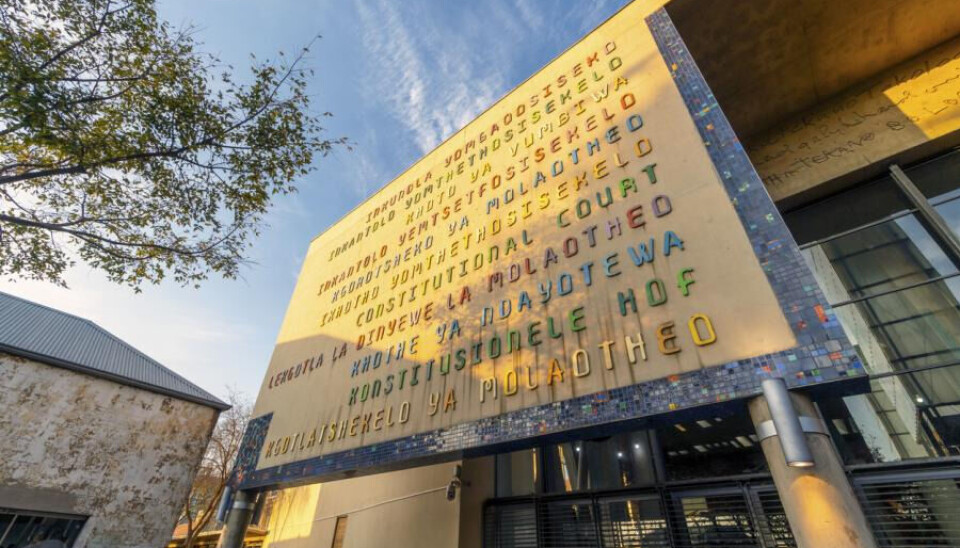Copyright : Re-publication of this article is authorised only in the following circumstances; the writer and Africa Legal are both recognised as the author and the website address www.africa-legal.com and original article link are back linked. Re-publication without both must be preauthorised by contacting editor@africa-legal.com
SA Constitutional Court ruling on parental leave a ‘significant step’ towards equality in workplace

In the landmark Van Wyk and Others decision delivered this month, the Constitutional Court has directed the South African legislature to remedy defects in employment laws relating to paternity leave that are discriminatory and unconstitutional
The unanimous judgement this month from South Africa’s Constitutional Court in Van Wyk and others v Minister of Employment and Labour that is set to transform the country’s parental leave system is a powerful affirmation of the constitutional rights to equality and dignity, says Nkosinathi Thema of Webber Wentzel, part of the legal team representing the Van Wyks on a pro bono basis in the landmark court case.
“It recognises that caregiving is not the exclusive responsibility of mothers and that both parents should have the freedom to decide how best to care for their child.”
The Van Wyk case challenged unequal parental leave provisions under section 25 of the Basic Conditions of Employment Act (BCEA), which granted birthing mothers up to four months of maternity leave, while limiting fathers to only ten (10) days.
Webber Wentzel's Pro Bono team, led by partner Ayanda Khumalo, represented the Van Wyks in the landmark case. Norton Rose and Bowmans acted for rights groups Commission for Gender Equality (CGE) and Sonke Gender Justice, respectively, which supported the Van Wyks’ application. CGE argued for equal parental leave for adoptive and surrogacy-commissioning parents, which the court partially granted. Sonke’s request for an equal 16-week leave for both parents was not granted.
In addition, Lawyers for Human Rights acted on behalf of the amici curiae (friends of the court): the Centre for Human Rights, Solidarity Centre, Labour Research Service, International Lawyers Assisting Workers Network, and the Centre for Child Law.
Speaking to Africa Legal earlier this year, Khumalo said doing pro bono work is extremely important, not only because as lawyers we have an obligation to give back to the communities we live in, but to help uphold the rule of law. “Pro bono can also be important for the development of our laws in South Africa,” she added.
Cases such as Van Wyk and others certainly do that.
In a unanimous judgment delivered by the Honourable Justice Tshiqi on 3 October, the Constitutional Court confirmed that sections 25, 25A, 25B and 25C of the BCEA, along with corresponding provisions of the Unemployment Insurance Fund (UIF) Act, are unconstitutional, violating the rights to equality and human dignity under sections 9 and 10 of the Constitution.
The Minister of Employment and Labour acknowledged a need for reform in the current legislation.
The Court suspended the declaration of invalidity of the BCE and UIF for three years, to allow the legislature to reform the laws and remove the constitutional defects, while putting in place principles that will immediately apply, including:
Employed parents may share the combined total of four months and 10 days of parental leave between them, concurrently or consecutively.
Single adoptive parents of children under two years old are entitled to the four months’ parental leave, and couples can share four months and ten days.
Parents of children born through surrogacy are entitled to the same leave.
Vanessa Jacklin-Levin, a Bowmans partner who co-led the Sonke Gender Justice team, noted that law firms will need to update their employment law advice to a range of clients in relation to these new parental leave entitlements, and work to ensure compliance with the interim regime set by the Constitutional Court.
The Court’s ruling takes a step towards placing dignity and equality in the heart of parental leave, said Kayan Leung of Lawyers for Human Rights.
“It marks a vital step in valuing care work and modernising South Africa’s labour law. I hope the public will engage with Parliament when the time comes to substantively shape legislation that reflects the needs of all interested groups.”
The full Constitutional Court judgment can be read here.
